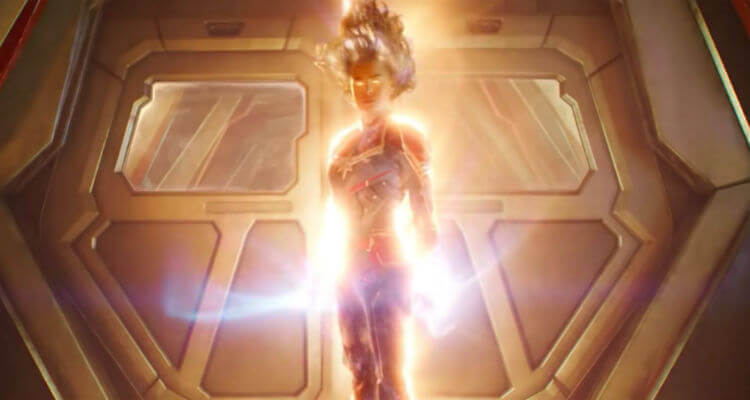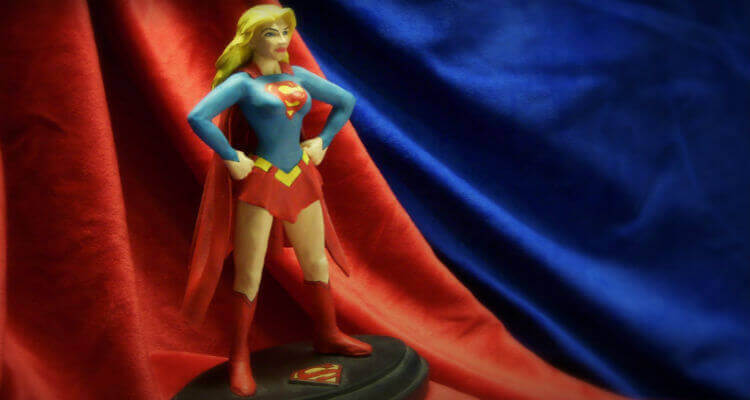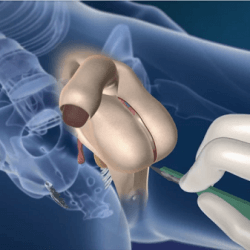Superheroes As Transhumanism: A Novel Way to Look at Future Sexuality?
Comic book films reveal a glimpse of what might be on our erotic horizon.

While still predominantly obscure and far from financially successful, though with a limited appeal to those familiar with the genre, superhero movies still offer some intriguing concepts in regards to how humanity, and the very nature of sex and sexuality, might evolve in the not-too-distant future.
Who are we kidding? Superheros are big, big, big, BIG, and being far from unaware of this we thought it was high time we joined the crowd, jumped on the bandwagon and took our special own look at what the cape and cowl set might mean for, you guessed it, the future of sex.
So put on your X-Ray specs, grab a bowl of your high fructose cereal, and tune in for the thrilling adventures of [insert superhero here].
I am the night
Normally, this would be where we’d go into the history of the genre, perhaps beginning with ancient myths and legends, followed by a brief detour over to antecedents like Baroness Orczy’s The Scarlet Pimpernel or Philip Wylie’s Gladiator, before getting to early luminaries like, to name just a few, Stan Lee, Jack Kirby, Bill Finger, and Steve Ditko.
Next we’d get to the genius contemporaries, who reinvented the whole idea of what superheroes are and can be with particular mentions of Grant Morrison as well as the brilliance of Alan Moore.
Finally, as this is Future of Sex, after all, we’d playfully get into that superheroes, and especially their creators, have had their own unique sexual sides, such as X-rated Tijuana Bibles for the characters and that William Moulton Marston, the creator of Wonder Woman, was an avid polyamorist, and that Joe Shuster, the co-creator of Superman, also drew fetish comics.
The fact is the history of comics and superheroes is hardly anything we honestly need to get into, considering the current popularity of the genre, so take the above as just a sample of what we might cover if we decided to include it anyway.
With great power

That out of the way, exactly what is a superhero? Don’t worry, we’re not going to get into the domain of deep, subsconscious vistas of meaning or touch on the primordial nature of myth and fiction. Besides, the already mentioned Grant Morrison and Alan Moore have done it better than we ever could.
Rather, consider superheroes as a manifestation of transhumanism. Now, this term we should explain, at least briefly.
The idea behind transhumanism, which we have touched on before here at Future of Sex, is the philosophy that it’s not just fine and dandy but actually can be essential for human beings to evolve through artificial means.
In short, transhumanism embraces having upgraded our bodies and minds—and if that’s not a perfect definition of a superhero then we’ll eat our secret decoder ring.
Captain America? Super-soldier serum. Hulk? Gamma radiation (abet accidental). Wonder Woman? Amazonian physiology. Thor? Similar though Asgardian. Iron Man? Basically cybernetically uplifted. Spider-Man? Genetically enhanced or radioactive insect bite.
You get the picture, True Believer? Even the heroes who aren’t enhanced still sort of are: Hawkeye’s perfect aim and Batman’s equally perfect intellect might have been honed through skill but there must have been some kind of biological advantage there to begin with.
That out of the way, let’s do some thinking about this transhumanist angle to superheroes—and what all this might have to do with sex.
No evil shall escape my sight

Back in 1969, the science-fiction master Larry Niven penned an article for Knight Magazine called “Man of Steel, Woman of Kleenex,” where he humorously postulated that, as sex can often be like an uncontrollable seizure, any physical intimacy between a Kryptonian and a regular human being would be, shall we say, messy at best.
But one thing that Niven doesn’t touch on, and that personally has always been a troubling point about then genre, is his assumption that what makes Superman so super isn’t transferable or, to put it a better way, shareable.
It’s an old comic cliche that what makes a person super is theirs and no one else’s, and anyone who tries usually ends up meeting a grisly end—or becomes a villain.
But, and being totally aware of the irony of this statement, is this realistic? Just looking at the MCU (the Marvel Cinematic Universe), we can see that many of our heroes’ enhancements could actually be packaged and even distributed.
Tony Stark is a genius but can give his armor to anyone, Black Widow’s skills were taught, Scarlet Witch and Captain Marvel’s came from infinity stones, and Black Panther’s extra-normal abilities come through the heart-shaped herb.
Up, up, and away

Sexually, this means that where intimacy with a non-super person would be impossible, or deadly, it actually might be possible to loan a more-fragile partner a component of what makes a superhero other-than-human.
Meanwhile, the heroes whose super-ness is through genetics, such as the Amazons and the Asgardians, with some genetic engineering skills could equally be used to foster a new form of humanity that could conformably mate, and reproduce, with them.
But what about poor ol’ Peter Parker and Bruce Banner? Their accidental transformations might be tough to physically copy but their genetics still could be passed on—either the old fashioned way or through some more genetic engineering—leading to more possible hybrids.
Then we get to pleasure. Considering that for superheroes everything is better, being able to share what they are could mean a tremendous change in human sexuality.
Having total muscle control, unlimited stamina, enhanced cognition, ultra-refined senses, being able to tolerate and thrive in any environment, plus all the technological benefits a genius like Tony Stark might bring to the bedroom might very well result in an uplifted humanity frolicking in the gas clouds of Jupiter, making love to hundreds or thousands at a time, or having orgasms that can literally rock the world.
Sex itself might become irrevocably altered, with faculties like telepathy and telekinesis allowing lovers to share not just physical but mental pleasure over any distance and with an unbelievable degree of intensity.
Because of this, a world of superheroes might not be one of spandex and tights, secret identities and tragic backstories, reconned origins and dark reimaginings, silly Twinkies ads and No Prizes, but instead would be a sprawling multiverse enhanced beings giggling, laughing, moaning, crying, and having a really good time in and out of costume.
Avengers assemble

One of the best things about superheroes, and especially the recent spate of movies based on them, is that while there might be darkness, death, and even sometimes despair in them at their core they are bright, spectacular, and most of all a lot of fun.
But keep also transhumanism in mind while you enjoy them: the idea that we can and maybe even should alter humanity through technology, and that in the future it might even be possible to change what we are into just about anything.
For now, superheroes, and all that they are and stand for are only myth: a light few hours of just-about mindless entertainment.
But give humanity enough time, intelligence, and persistence and we can do anything—including making our dreams, no matter how fantastic, into reality.
Who knows, maybe in the far future one of our physically and sexually enhanced ancestors is sitting in their Fortress of Solitude and reading this archived article with the same sweet nostalgia we have towards the earliest days of comic books and superheroes?
Then, with a mighty chuckle, they’d sweep back their scarlet cape and take to the skies in search not of evil to defeat but grander sexual pleasures to explore.
Image sources: Marvel Entertainment, JD Hancock, JD Hancock, Leo Leung, JD Hancock
Leave a reply
You must be logged in to post a comment.

















